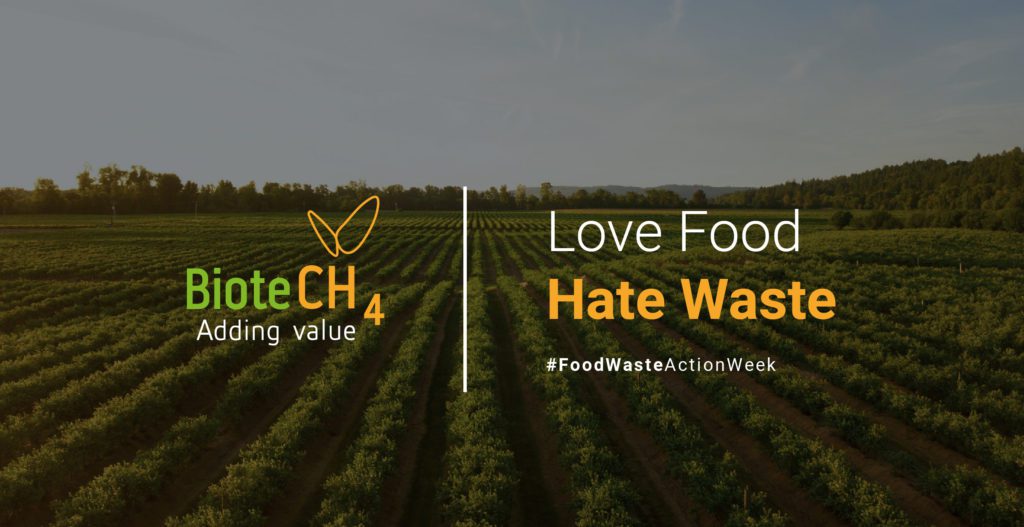What Local Authorities Can Do to Reduce Household Food Waste
- Local Authorities
- -
In the UK, we produce around 10 million tonnes of food waste in a year, amounting to about £19 billion in value. Some of it is unusable, like peels, seeds, and pits of fruits and vegetables. Some of it is bones from the meats consumed. However, a large portion is also food that has gone bad or is past its ‘best by’ date. Waste and Resources Action Programme (WRAP) estimates that around 75% of this could have been eaten.
Waste Not, Want Not
In short, nearly three-quarters of the food waste that ends up being thrown out did not need to be thrown out at all.
Since food waste is largely preventable and can damage the environment, there is a drive to reduce it.
The fact is, about 70% of the food waste, by weight, is household food waste. Moreover, unless the council offers a food waste recycling service, household food waste ends up in the general rubbish, forming a significant proportion of the total rubbish.
Even those Councils that offer a food waste recycling service still see food waste in the general rubbish bin. At this point, the waste ends up in landfill or, more recently, incinerators.
The problem is landfills are not good for the environment for many reasons. The most important of them is the fact that the waste ends up undergoing anaerobic decomposition. This process produces methane (CH4), as well as carbon dioxide (CO2) and water vapour. These are three of the top greenhouse gases (GHGs) that contribute to the climate change problem.
How can local authorities manage food waste better?
The Environment Act 2021 is the Government’s way of combatting the issue. This Act requires any recyclable household waste to be collected separately, and to be recycled.
Ahead of the Act coming into force, North East Lincolnshire Council (NELC) rolled out a pilot scheme to collect food waste separately from almost 5,000 homes. This effort was so successful that the council is now planning to extend it to another 900 homes.
This goes to show that people are willing to work towards a healthier planet if they are given the means to do so.
That is not to say that each person is equally committed to reducing food waste. What it does mean is that the vast majority of people are happy to make a change as long as it is convenient for them.
But, convenience can be subjective and what’s suitable for one might not be ideal for another. As a result, local authorities might find it beneficial to combat this problem from various perspectives.
So, what can local authorities do to encourage households to reduce their food waste?

1. Educational campaigns
Sometimes, people can be well-intentioned but simply aren’t aware of how their actions might be damaging. In that case, making them aware can inspire them to change how they manage their food.
For example, the Love Food, Hate Waste campaign explains in great detail how food waste is bad for the environment. It then goes on to offer tips on how to store food properly so it lasts longer and clever recipes that help one use up various leftover ingredients.
Local authorities could make use of this existing resource to collaborate and plan campaigns that drive education. And, instead of focusing on one medium, you could approach this from a multi-platform perspective by also helping people by giving them the resources to use up produce and ingredients that they may have in their refrigerators.
For example, in addition to traditional marketing (like messages on local buses and bus stops, fliers, etc), there could also be social media campaigns, direct engagement with residents at local community events or market days, and using influencers and ambassadors to promote your message, particularly during awareness periods like Food Waste Action Week.
These messages could encourage households to put more thought into their food shopping. That, in turn, will help them reduce the amount of ‘impulse-bought’ food that never gets used.
2. Taking higher-level action
Whilst local authorities can’t make people change the way they manage their household’s food, you can certainly make larger changes that can influence their behaviour.
For example, most people rely on the ‘best by’ or ‘use by’ dates on the packaging to determine when the food needs to be discarded.
However, it might not be clear as to whether the product is unusable after the printed date or if it’s a guideline and users should exercise their own discretion.
As a result, people may throw out food that is usable just because of the date printed on it.
At this point, education is certainly necessary. A vegetable or fruit that looks absolutely fine does not have to be thrown away just because the packaging says so. The milk jar might have today’s date on it, but if the milk smells fine, it can still be used.
In fact, from September 2022, the Co-op is introducing ‘Freeze me’ labels across all their own milk products to combat dairy waste. Since people generally don’t think about freezing milk as they do with meats and fish, this is a good way to remind them of the option. Such labels can help alleviate household food waste across the board.
Also, collecting food waste separately might not solve the food waste problem but it can help mitigate the effect these types of waste have on the environment.
Moreover, you cannot discount the effect that seeing how much food waste is being generated (which is currently just going in with the general rubbish) can have on how households manage their food.
3. Encourage food donation
Sometimes, even with the best intentions, people can find themselves in a position where they have food that just cannot be used up in time. It might be leftovers from last night’s meal or ingredients that might go off in a day or two but won’t be used up in that time.
In such cases, local authorities could encourage food donation and make it easy for households to pass on what they can’t consume to others who need it.
This way, even if they can’t use something, someone else will, and the food won’t end up in the bin.
4. Introduce a food waste recycling collection
While the Environment Act 2021 is in place, there is no need to wait for Government to force the hand of the local government.
Local authorities have the power today to change their waste collection plans including introducing a separate food waste collection. Separate collections are the best way to educate residents on how much food they are throwing away each week.
5. Cross-sector collaboration
While the Environment Act 2021 is in place, there is no need to wait for Government to force the hand of the local government.




